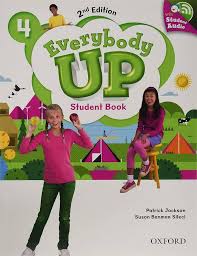Key Features of Power Up 3 (Second Edition):
Advanced Literacy Skills:
Reading Comprehension: At this level, students engage with more complex texts, including longer stories, nonfiction articles, and poetry. They focus on understanding themes, character motivations, and making inferences. Students will also work on identifying the main idea and supporting details.
Vocabulary Building: Students will expand their vocabulary by learning more complex words, understanding synonyms and antonyms, and using context clues to determine the meanings of unfamiliar words.
Writing Skills: Students will write more structured paragraphs, learning to organize their ideas clearly and coherently. They will also work on writing simple essays and using different types of sentences (e.g., compound and complex). Emphasis will be placed on proper punctuation, grammar, and spelling.
Mathematics:
Multiplication and Division: Building on earlier math concepts, students will work with multiplication and division of larger numbers, and begin solving multi-step problems. They will also begin working with fractions and decimals.
Place Value and Number Operations: Students will deepen their understanding of place value (up to the thousands) and perform operations such as multiplying and dividing larger numbers.
Geometry and Measurement: The program introduces more advanced geometric concepts, including properties of triangles, quadrilaterals, and circles. Students will learn to calculate area and perimeter for various shapes and measure angles.
Problem Solving and Word Problems: Students will apply their math knowledge to solve more complex word problems, involving multiple steps and different operations.
Critical Thinking and Problem-Solving:
Logic and Reasoning: At this level, students are encouraged to solve logic puzzles, practice deductive reasoning, and identify patterns. These activities help students apply mathematical reasoning in real-world scenarios.
Scientific Thinking: Students might also be introduced to basic scientific inquiry methods, such as observing, predicting, and testing hypotheses. This helps build their logical thinking and problem-solving skills.
Social-Emotional Learning (SEL):
Conflict Resolution: Activities will focus on helping students learn how to resolve conflicts in a healthy way, including using negotiation, compromise, and communication.
Self-Management: Students will practice goal-setting, time management, and self-reflection to build emotional intelligence and resilience.
Building Positive Relationships: The program encourages positive peer interactions, cooperation, and group work, promoting teamwork and respect.
Interactive and Hands-On Learning:
Experiential Learning: At this level, students will engage in projects and hands-on activities, such as creating presentations, conducting simple science experiments, and completing math challenges.
Games and Group Activities: The program incorporates educational games and group activities to reinforce academic concepts in an engaging way. For example, students might work together to complete math challenges or literacy games.
Teacher and Parent Support:
Lesson Plans and Resources: Teachers and parents have access to guides, lesson plans, and practice materials to ensure that students are meeting the program’s learning objectives.
Assessments: Regular assessments and quizzes help track student progress, identify areas for improvement, and ensure mastery of key skills.
Power Up – Second Edition 3 Resrouces
Pupil’s Book.pdf
Activity Book.pdf
Teacher’s Book.pdf
A1 Exam Correlation Chart
Activity Book Answer Key
Audioscripts and Video Scripts
CEFR Correlation Chart
Class Audio
Extended Reading Lessons
Festivals
Flashcards and Wordcards
Grammar Booklet
Home Booklet
Letters to Families and Caregivers
Teacher’s Book
Tests
Videos and Animations
Worksheets
Sample Power Up 2e 3 Activity Book.pdf
Sample Power Up 2e 3 Pupils Book.pdf
Sample Power Up 2e 3 Teachers Book.pdf
Original price was: $20.00.$11.50Current price is: $11.50.
Buy Now









Reviews
There are no reviews yet.